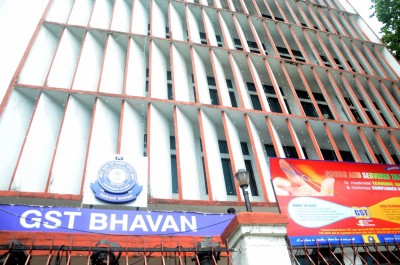
Visakhapatnam, Andhra Pradesh commercial taxes department has levied a penalty of Rs 6 crore on a city based jeweller, Trizol Enterprises, for manipulating the invoices and taxes due to the state.
"Around Rs 6 crore tax in penalty was identified for all sorts of evasion," told GST joint commissioner M. Srinivas Rao to IANS on the erring entity.
Explaining the modus operandi, he said the jeweller's main breach was failing to raise B2B bills for registered dealers to whom Trizol used to supply gold.
"He generally sells to registered dealers and is supposed to raise B2B invoices but was raising bills on the names of individuals," said Rao.
An illegal practice like this, in gross violation of invoicing and GST rules, can lead to unaccounted sales of jewellery down the line.
"This is punishable with 100 per cent penalty," said the joint commissioner, highlighting that the jeweller can claim that the individual on whom he has raised the bills died or is untraceable.
According to Rao, authorities cannot also trace the other entities where the sold gold had gone as GST and VAT are all connected like a chain, leading to the loss of value addition.
Another violation indulged by the jeweller was falsely showing bills that he took gold as a raw material to melt it and design ornaments of choice for the customers but would actually sell off readymade ornaments available with him on the same day.
"He is showing as if he is taking the gold and making the ornaments but delivering on the very same day. What is the inference on designing gold the very same day and taking making charges?" he posed.
Rao said that the ornaments were already made and readily available but the jeweller was showing that he was charging only the making cost but in reality it is actually an outright sale of brand new ornaments, which include the cost of the gold as well.
"The very same day nobody can give. It may happen once or twice but not always. Repeatedly this is happening," said the GST official.
Finally, the jeweller was also committing the common violation of buying higher amounts of the precious metal but officially accounting for lower quantities.


.jpeg)

